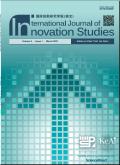Evolution of policy-driven ecosystem of original innovation talents
IF 5.3
Q2 MANAGEMENT
引用次数: 0
Abstract
In an era of unprecedented global challenges, the cultivation, attraction, and retention of original innovation talent have become critical determinants of national competitiveness and sustainable development. This study introduces a novel multi-agent original innovation talent ecosystem model (MOITEM) to systematically analyze the effects of different talent policies on the ecosystems of original innovation talent across various regions in China. The simulations reveal that while direct talent policies drive short-term talent growth, they often fall short of addressing the long-term needs for resource allocation and environmental optimization, thereby limiting sustained competitiveness. In contrast, indirect and combined talent policies prioritize the overall quality of the ecosystem, providing more enduring support for original innovation. Furthermore, this study explores the interactions among agents within the ecosystem and their synergistic relationships with the external environment, highlighting the necessity of targeted policy formulation and multi-agent collaboration. The findings not only elucidate the strengths and limitations of various talent policies but also offer tailored recommendations based on regional characteristics, emphasizing the importance of continuous evaluation and adaptive policy adjustment. These insights hold substantial theoretical and practical implications for the development and optimization of global policies aimed at fostering original innovation talent.
政策驱动的原始创新人才生态系统的演变
在面临前所未有的全球性挑战的时代,培养、吸引和留住原始创新人才已成为国家竞争力和可持续发展的关键性决定因素。本研究引入新颖的多代理原始创新人才生态系统模型(MOITEM),系统分析了不同人才政策对中国各地区原始创新人才生态系统的影响。模拟结果表明,直接的人才政策在推动短期人才增长的同时,往往无法满足资源配置和环境优化的长期需求,从而限制了持续竞争力的提升。相比之下,间接人才政策和综合人才政策则优先考虑生态系统的整体质量,为原始创新提供更持久的支持。此外,本研究还探讨了生态系统内各主体之间的互动及其与外部环境的协同关系,强调了有针对性的政策制定和多主体协作的必要性。研究结果不仅阐明了各种人才政策的优势和局限,还根据地区特点提出了有针对性的建议,强调了持续评估和适应性政策调整的重要性。这些见解对制定和优化旨在培养原始创新人才的全球政策具有重要的理论和实践意义。
本文章由计算机程序翻译,如有差异,请以英文原文为准。
求助全文
约1分钟内获得全文
求助全文
来源期刊

International Journal of Innovation Studies
Business, Management and Accounting-Strategy and Management
CiteScore
8.10
自引率
0.00%
发文量
23
审稿时长
19 weeks
 求助内容:
求助内容: 应助结果提醒方式:
应助结果提醒方式:


